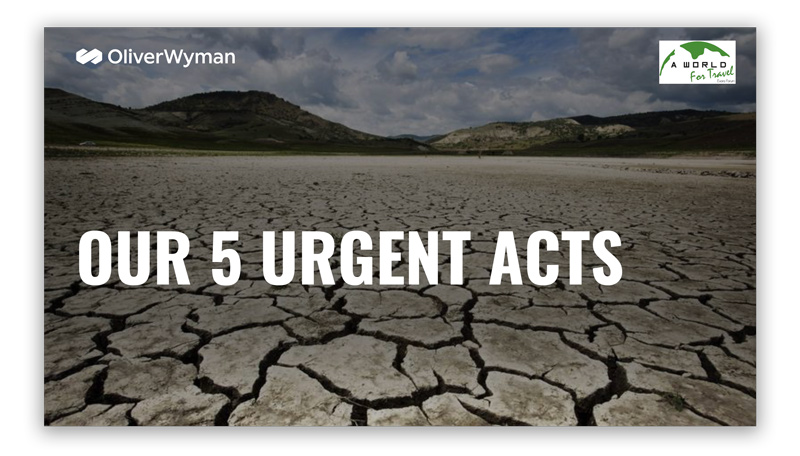OUR 5 URGENT ACTS
A continuous approach starting at the industry baseline established at #AWFT21
OFFER RELIABLE CARBON COMPENSATION OPTIONS / INCENTIVES
With only 10% of airlines offering voluntary carbon offsetting and consumer confidence in the credibility of many schemes very low the introduction of the industry adopting a unique carbon footprint calculator and tax incentives and public investment in cleaner plans will play a big part in this act.
COMMIT TO A CARBON REDUCTION PLAN FOR EVERY SECTOR
There has been a 60% growth in tourism related CO2 emissions between 2005 and 2015, with an expected rise of CO2 emissions for 2030 unless decarbonisation is accelerated, it is crucial to reduce carbon across every sector. Many corporations and travel companies already have net zero targets in place, but it now critical that every organisation meets this goal and is scored by international certification companies.
PRIORITIZE INVESTMENTS TO DEVELOP SUSTAINABLE TOURISM
The average Travel and Tourism Capital Investment is 17% as a contribution to GDP and this spending needs to be increased to develop sustainable tourism. Many countries do not invest enough in tourism and soon it will become more difficult to invest without a sustainable tourism plan as banks prioritise those investments with strong ESG credentials.
INVITE COMMUNITIES TO CO-DESIGN TOURISM SOLUTIONS
This commitment is based on the strongest theme which came out of the Évora Forum. It is crucial to ensure tourism benefits the places and people it touches. 70% of tourists want to positively impact the economy and the environment they travel to and so this commitment strongly aligns with consumer demand. Incentives and best practice plans need to be put in place to show the world how tourism and community can be mutually beneficially of each other.
ACCELERATE & STRENGTHEN LOCAL SUPPLY CHAINS / ECOSYSTEMS
Dovetailing with the fourth act, businesses should always choose a local supplier even if more expensive. 95% of visitor expenditure leads the destination in developing economies, meanwhile 83% say that it is right that businesses and brands focus on a positive impact, rather than just doing less harm to the planet and its people.




